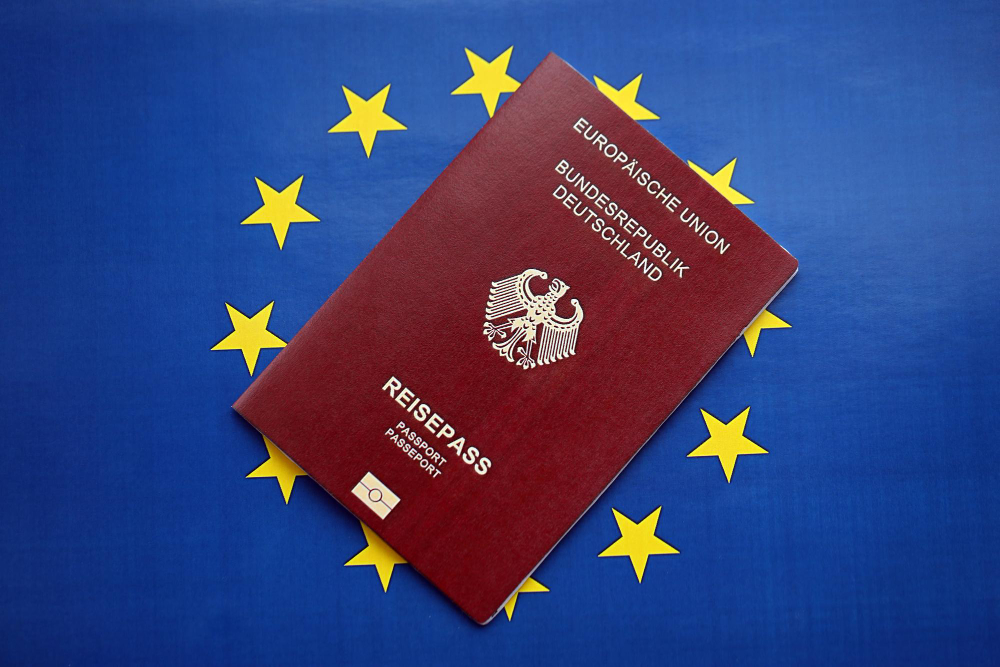Foreigners Residing in Germany Can Now Acquire German Citizenship Faster
KEY TAKEAWAYS
- Germany's new citizenship law is set to take effect in a few hours.
- The law enables foreigners to obtain German citizenship more quickly.
- Naturalisation applicants can now retain their previous citizenship when obtaining German citizenship.
Foreigners living in Germany can become German citizens faster and without surrendering their previous nationality.
Germany’s updated citizenship law, which aims to modernize the process for obtaining a German passport, will come into effect after midnight on June 27, 2024.
The new law broadens eligibility for German citizenship, with naturalisation numbers expected to rise significantly in 2024. According to Interior Minister Nancy Faeser, foreigners living in Germany who share the country's values and meet all requirements can now acquire citizenship more rapidly. However, she emphasized zero tolerance for anti-semitic, racist, or other malicious behaviors.
"Anyone who shares our values and makes an effort can now get a German passport more quickly without having to give up their old nationality. But we have also made it clear: anyone who does not share our values cannot get a German passport," stated Minister Faeser.
Main Changes:
Possibility to Hold Multiple Nationalities:
The new law allows foreign nationals living in Germany to hold multiple citizenships, meaning they won't have to renounce their previous nationality when they become German citizens.
Accelerated Procedure:
Foreigners can now apply for citizenship after five years of legal residence in Germany instead of the previous eight years. For those married to German citizens, the waiting period is reduced to four years. Those fully integrated into German society, demonstrating outstanding job performance, voluntary work, financial independence, and high proficiency in German can apply after just three years.
Quicker Path to Citizenship for Children Born in Germany to Foreign Parents:
Children born in Germany to foreign parents can obtain German citizenship and retain their parents' nationality if one parent has legally resided in Germany for over five years and holds an unlimited right of residence.
Expanded German Citizenship Test:
The naturalisation test now includes questions on anti-semitism, Israel, and Jews in Germany.
Recognition for the "Guest Worker" Generation:
Guest workers, primarily Turkish nationals who moved to West Germany in the 1960s, are no longer required to take the citizenship test. They only need to prove good German language skills in recognition of their "lifetime achievements" in Germany.
Restrictions for Obtaining German Citizenship:
As noted by Minister Faeser, naturalisation applicants must have no criminal record, secure their own livelihoods without government assistance, and asylum seekers who have stayed in Germany due to a ban on deportations are not eligible to apply for citizenship.

